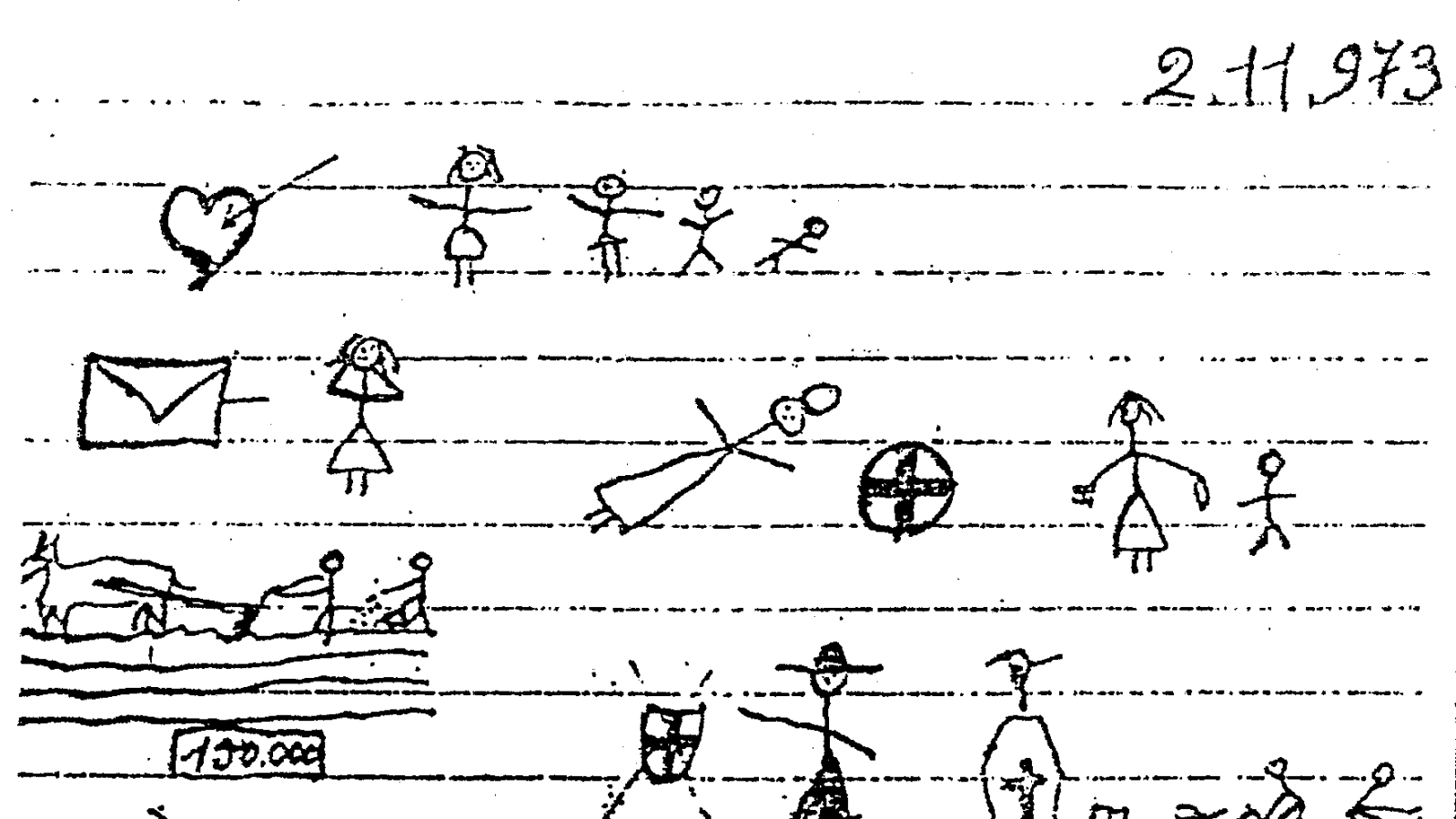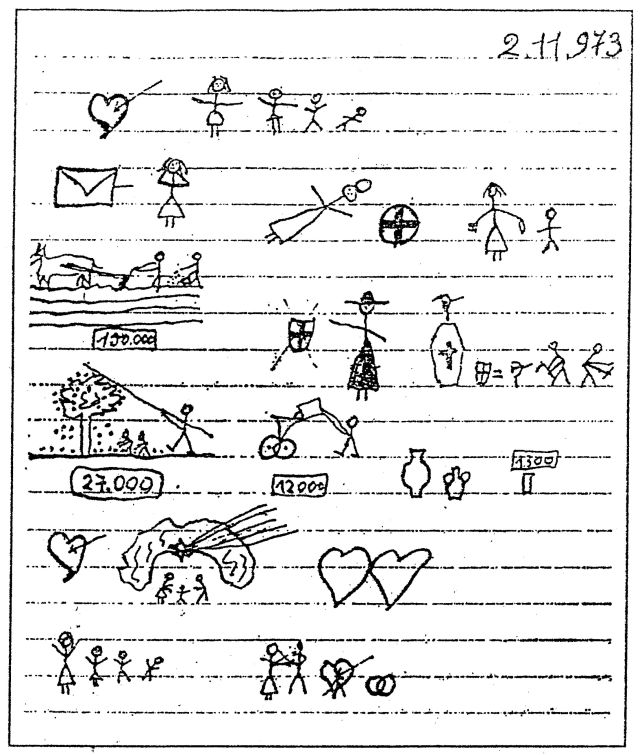Long-distance relationships have always been challenging and hard. However, with the advantage of video calls, and chat, nowadays is much easier than it was in the past, right?
Not so far in the distant past, the international calls were a luxury, the internet was yet to be invented, and the only way to keep in touch was by writing letters.
But, what about the people who could not write?
In the 1970’s, 5.2% of the population in Italy was illiterate. Women from the rural areas were often those who could not write or read.
Quartz published the amazing and poignant story of one of these illiterate women, who found out a way to communicate with her migrant husband in 1973.
The mother of three, likely from the area around Catania, on the eastern side of Sicily, wrote letters written entirely in pictures.
Source: Quartz
The Sicilian writer Gesualdo Bufalino, unveiled this poignant love story in his book La Luce e il Lutto (“Light and Grief”).
The letter was addressed to her migrant worker husband abroad in Germany. She did not ask for help in composing the letter in Italian in order to preserve intimacy. So the woman and husband invented their own secret code language.
Bufalino, reports Italian online publication Il Post (link in Italian), was able to retrieve one of their letters and translate the symbols into words.
Quartz translated it into English:
My dear love, my heart is tormented by your far away thought, and I stretch my arms toward you, together with the three kids. All in good health, me and the two older, unwell, but not seriously, the little one. The previous letter I sent you didn’t receive a reply, and I am sad about it. Your mother, hit by a disease, is in the hospital, where I go visit her. Do not worry that I go there empty-handed; or alone, generating gossip: our middle son comes with me while the oldest looks after the youngest.
Our little field, I ensured that it was ploughed and sown. To the two daily workers, I gave 150,000 lire [about €500, or $560 today] . The town elections were held. I voted for the Christian Democracy, as the parish suggested. For the Hammer and Sickle, the defeat has been huge: as if they died, in a coffin.
But whether one or the other wins, it’s the same. Nothing changes for us poor people: we dug yesterday, and we will dig again tomorrow. Many olives, this year, from our olive trees. The men and two guys I hired, one to knock them down, the others to pick them from the ground, cost me 27,000 lire (about €90). I spent 12,000 (about €40) more for the olive press. I obtained enough oil to fill a large jar and a small one. I can sell it at the current price, which is 1,300 lire (about €4) a liter.
My far away love, my heart thinks of you. Now, especially that Christmas is close, I wish that I were with you, heart to heart. A hug, then, from me and our three little kids. Goodbye, dear love, my heart is yours and I am faithful to you, joined to you as our two rings are.
Here is the Italian version:
Amore mio caro, il mio cuore è trafitto dal tuo pensiero lontano, e ti tendo le braccia insieme ai tre figli. Tutti in buona salute, io e i due grandicelli, indisposto, ma non gravemente, il piccino. La precedente lettera che t’ho spedito non ha ricevuto risposta e ne soffro. Tua madre, colpita da un male, si trova in ospedale, dove mi reco a trovarla. Non temere che ci vada a mani vuote; né sola, dando esca a malelingue: m’accompagna il figlio mezzano, mentre il maggiore rimane a guardare il minore. Il nostro poderetto, ho provveduto che fosse arato e seminato. Ai due “giornalieri” ho dato 150.000 lire. Si son fatte le elezioni per il Comune. Ho votato Democrazia Cristiana, come il parroco m’ha suggerito. Per la Falce e Martello la sconfitta è stata grande: come fossero morti, in un cataletto.
Ma che vincano gli uni o gli altri, è tutt’una. Nulla cambia per noi poveretti: abbiamo zappato ieri, zapperemo ancora domani. Molte ulive quest’anno, dai nostri ulivi. L’uomo e i due ragazzi che ho assunto, l’uno per bacchiarle, gli altri per raccoglierle a terra, mi sono costati 27.000 lire. Altre 12.000 lire le ho spese per il frantoio. Ne ho ricavato tant’olio da riempire una giara grande e una piccola. Posso ricavarne il prezzo corrente che è di 1.300 lire al litro.
Amore lontano, il mio cuore ti pensa. Ora, soprattutto, che viene Natale e vorrei essere insieme a te, cuore a cuore. Un abbraccio, dunque, da me e dai tre figliolini. Arrivederci, amore caro, il mio cuore è tuo e ti sono fedele, unita a te come i nostri due anelli.

